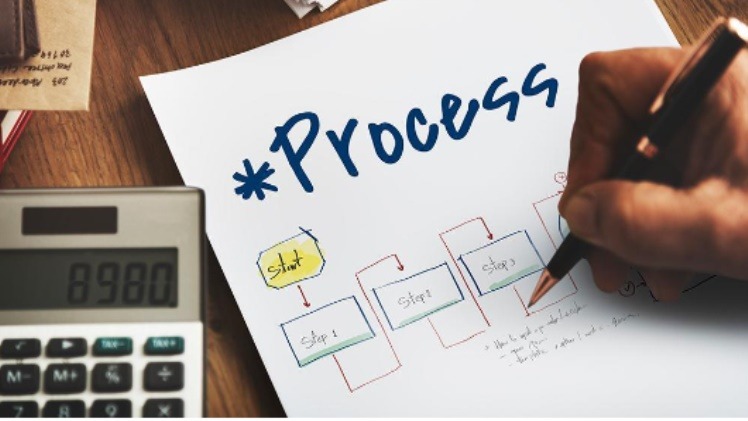Import code renewal facilitates international trade by identifying specific goods and ensuring smooth customs clearance. However, import codes expire, and businesses need to renew them promptly to avoid disruptions in their import operations.
In this article, we will explore the process of import code renewal, its importance, and best practices to ensure a seamless renewal experience.
Introduction to Import Code Renewal
Import codes, also known as Harmonized System (HS) codes or Tariff codes, are numerical codes assigned to goods to classify them for customs and trade purposes. These codes help customs authorities identify the nature of imported goods, determine applicable duties and taxes, and monitor trade statistics. Import codes are typically valid for a specific period, after which they need to be renewed.
Importance of Import Codes
Import codes are vital for businesses engaged in international trade. They ensure compliance with customs regulations, enable accurate calculation of duties and taxes, and assist in trade data analysis. Without valid import codes, businesses may face delays in customs clearance, incur penalties, or even have their shipments seized. Renewing import codes on time is crucial to maintaining uninterrupted import operations.
Challenges with Import Code Renewal
Renewing import codes can pose several challenges for businesses. Some common issues include:
- Lack of awareness: Many businesses are unaware of the expiration dates of their import codes, leading to delays in renewal.
- Complexity of the process: The process of import code renewal can be intricate, involving multiple steps and interactions with customs authorities.
- Documentary requirements: Renewal often requires submitting various documents, such as invoices, packing lists, and certificates of origin, which can be time-consuming to gather and organize.
- Language barriers: Dealing with customs authorities in a foreign language can be challenging, particularly if translation services are not readily available.
Steps to Renew Import Codes
To ensure a smooth import code renewal process, follow these steps:
Step 1: Review the current import codes
Start by reviewing your existing import codes and noting their expiration dates. This will help you identify codes that need to be renewed.
Step 2: Identify any expired or inactive codes
Check if any import codes have already expired or are inactive. It is crucial to address these codes promptly to prevent disruptions in your import operations.
Step 3: Contact relevant authorities for code renewal
Reach out to the appropriate customs authorities or agencies responsible for import code renewal. They can provide you with the necessary information and guidance on the renewal process.
Step 4: Submit required documents and information
Prepare the required documents and information for the renewal application. This may include invoices, product descriptions, certificates of origin, and any other relevant paperwork.
Step 5: Follow up on the status of the renewal
Regularly follow up with the customs authorities to ensure the timely processing of your renewal application. Stay proactive and address any additional requirements or inquiries promptly.
Benefits of Renewing Import Codes
Renewing import codes offers several benefits to businesses, including:
- Uninterrupted import operations: Renewed import codes ensure smooth customs clearance, preventing delays or shipment seizures.
- Accurate duty calculation: Renewed codes help businesses calculate applicable duties and taxes accurately, avoiding any miscalculations or disputes with customs authorities.
- Compliance with regulations: Renewing import codes demonstrates compliance with customs regulations, promoting a trustworthy image with customs authorities and trade partners.
- Enhanced trade data analysis: Renewed codes contribute to accurate trade data collection, enabling businesses to analyze market trends and make informed decisions.
Best Practices for Import Code Renewal
To streamline the import code renewal process, consider the following best practices:
Stay updated with regulations
Keep yourself informed about the latest customs regulations and import code renewal requirements. Regularly check for any updates or changes that may affect your renewal process.
Maintain accurate records
Maintain well-organized and up-to-date records of your import codes, their expiration dates, and renewal status. This will help you track renewal deadlines and avoid any oversight.
Plan ahead for code renewal
Anticipate the renewal process well in advance. Initiate the renewal process early to ensure ample time for gathering the required documents and addressing any unforeseen challenges.
Seek professional assistance if needed
If you find the import code renewal process complex or overwhelming, consider seeking professional assistance from customs brokers or trade consultants. They can guide you through the process and ensure compliance.
Common Mistakes to Avoid during Import Code Renewal
During the import code renewal process, be mindful of the following common mistakes:
Neglecting code renewal deadlines
Missing the renewal deadline can result in delays, penalties, or even shipment seizures. Always stay aware of the expiration dates and plan your renewal well in advance.
Providing incomplete or incorrect information
Ensure that all the required information and documents are complete, accurate, and up-to-date. Incomplete or incorrect information can lead to processing delays or rejection of your renewal application.
Failing to communicate with relevant authorities
Maintain open lines of communication with customs authorities throughout the renewal process. Promptly respond to any inquiries or requests for additional information to avoid delays.
Conclusion
Renewing import codes is a vital task for businesses engaged in international trade. By following the necessary steps, adhering to best practices, and avoiding common mistakes, you can ensure a smooth import code renewal experience. Import code Renewal on time not only facilitates seamless customs clearance but also demonstrates compliance with regulations and promotes uninterrupted import operations.
